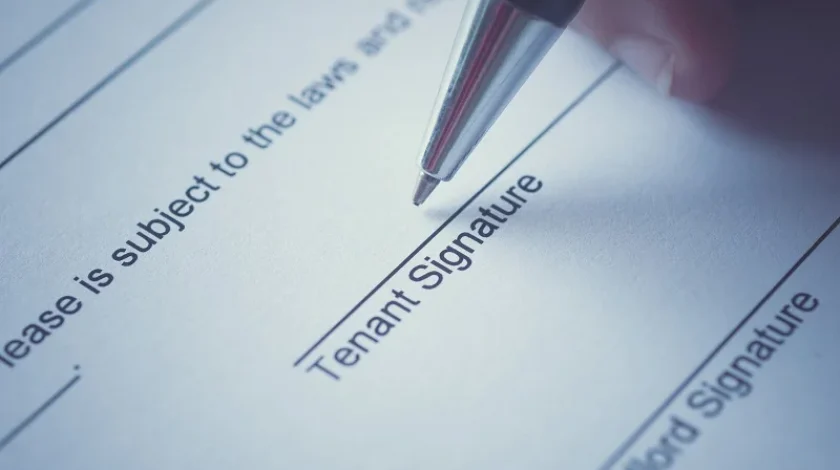It is important to fully understand your rights and obligations under a lease before signing the dotted line, so that your actions, or lack thereof, aren’t found to be in breach of covenant under the lease down the track. The case In the matter of Fearndale Holdings Pty Limited [2019] NSWSC 645 demonstrates the court’s interpretation of the Conveyancing Act (the Act) where a lessor or landlord serves a notice of breach of covenant under the lease.
The Background and Facts
The landlord, Fearndale Holdings Pty Ltd (Fearndale), owned a clay and shale quarry property at Luddenham. The tenant under the lease in March 2017 was Drama Unit Pty Ltd (Drama).
In June 2018, the previous tenant vacated the premises. Drama informed Fearndale it would take possession of the property and sent Fearndale a cheque of $28,000 for the first month’s rent.
However, Fearndale returned the cheque as they didn’t make a determination as to the validity of occupation. In the same month, Fearndale served Drama with several notices to remedy breaches of the lease for failure to attain a mining authorisation under the Mining Act and an environment licence under the Protection of the Environment Operations Act. The notices were made in the form required by the Conveyancing Act but included an additional unique requirement for Drama to remedy the breaches within 14 days.
Fourteen days later, Fearndale served two notices of termination of the lease – the first for non-payment of rent and the second for Drama’s failure to obtain the necessary consents and approvals. Drama began proceedings to seek relief regarding the notices of termination of the lease. In November, the court delivered its first judgment, finding Ferndale hadn’t effectively terminated the lease because the tenant hadn’t been provided with a reasonable time to remedy the claimed breaches.
The following month, Fearndale sent Drama a new letter demanding payment of rent and outgoings which were due under the lease. Drama didn’t meet these and as a result in January 2019, Fearndale served four fresh notices of breach of the lease relating to Drama’s failure to obtain the mining authorisation and environmental licence before entering the lease and its failure to provide current copies of these.
In February, Fearndale made a further demand for Drama to pay rent and outgoings which Drama failed to do. Fearndale served six further notices of termination of the lease in March for Drama’s failure to obtain and provide copies of the relevant mining authorisation and environmental licence, as well as failure to pay rent and outgoings.
The Court’s Reasoning
The Court determined that the first set of notices of termination wasn’t effective because of the timeframe given to remedy the claimed breaches. The later notices for non-monetary defaults were valid as the Act and the considered case law don’t require a reasonable time to remedy claimed breaches be specified in notices. In fact, specifying a reasonable time frame for the remedying of a breach in a notice could be misleading, if the landlord isn’t aware of all relevant factors, or if circumstances change between the time of notice and the time of termination.
To this end, the court found the later termination notices were served validly and effectively, and that from March 2019, the lease was terminated. Fearndale’s return of the rent cheque didn’t indicate an intention to permanently release Drama from its obligation to pay rent under the lease. A waiver by Fearndale didn’t occur as it had expressly required Drama to pay rent from December 2018, which the tenant failed to do.
Under the lease, Drama’s obligation to pay rent wasn’t conditional upon occupying the premises. For Drama not to be held liable to pay rent, it had to be wrongfully excluded from the premises which was not the case as Fearndale was entitled to withhold possession due to the breaches of the lease.
Outcome
Drama had gained the right to occupy the property, as well as a proprietary interest, as evidenced by its registration of caveats on the land. However, in delivering its judgment the court ordered Drama to withdraw and release those caveats as the lease was validly terminated and therefore Drama had no right to hold them.
Drama received and retained a substantial part of the benefit promised under the contract, and there was no total failure of consideration on the part of Fearndale.
Drama was required to pay $341,890.72 for rent and $34,157.10 for outgoings due and payable.
Key Takeaways
- The liability of a tenant to pay rent and outgoings isn’t waived simply because a landlord has expressed its intention not to bank a cheque sent by the tenant – especially if the landlord communicates afterwards that the payment of rent and outgoings is required.
- A tenant’s ability to use the land for incidental purposes doesn’t detract from its obligation to obtain relevant consents and approvals to conduct the permitted use required under the lease. A notice of breach of covenant under a lease doesn’t need to specify the timeframe required to remedy a breach however, the issuing party does need to allow the alleged defaulting party a reasonable time to attempt to remedy the breach before serving a valid notice of termination.
If you would like me to review your lease and advise you of your rights and obligations under it, or would like me to negotiate the specified requirements under your lease prior to signing, please contact:














